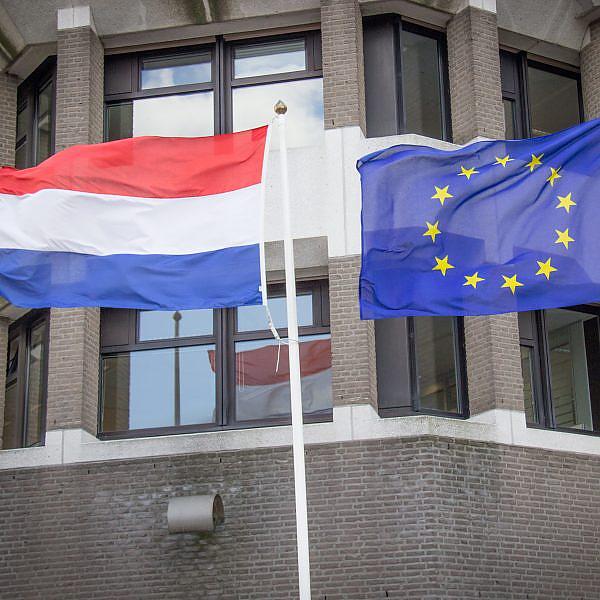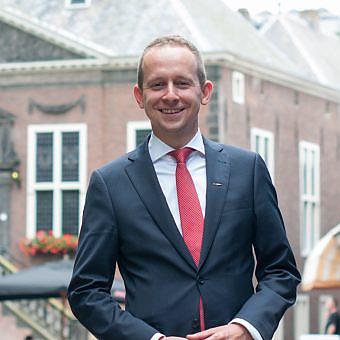Save the Netherlands and break the power of Brussels
Save the Netherlands and break the power of Brussels

No day goes by without some sort of crisis in the EU. Whether it's the refugee crisis or Brexit, the Brussels elite's solution to the problems is always the same – more Brussels, a European superstate, for all your questions and answers. The coming elections for the European Parliament aren't therefore about who will be the next president of the European Commission, but about where power lies. For SP Member of Parliament Renske Leijten and Arnout Hoekstra, who will head the party's list for those elections, the answer is clear. We must move towards a form of European cooperation in which Brussels no longer plays the boss.
- By Renske Leijten and Arnout Hoekstra
 In order to be able to understand the problems of the present, we must first look to the past. The European Union was created after the Second World War with the ideal of ending war forever. Cooperation among European countries could prevent such conflicts. A fine ideal the results of which were a period of peace of unprecedented duration on a continent which had for centuries been rent by war.
In order to be able to understand the problems of the present, we must first look to the past. The European Union was created after the Second World War with the ideal of ending war forever. Cooperation among European countries could prevent such conflicts. A fine ideal the results of which were a period of peace of unprecedented duration on a continent which had for centuries been rent by war.
Only with the coming into force of the Maastricht Treaty in 1993, which established the free movement of capital, goods, services and labour did this begin to be distorted. Removing borders was supposed to bring the member states closer together. Unfortunately the opposite was the case. Member states had to compete with each other over the cost of labour, with big capital having the last laugh. The introduction of the euro in 2002 was the icing on the cake, but the cake had still to be baked, because the agenda behind the introduction of a common currency is a common politics, one shaped by a Brussels elite and a European president. And this is precisely what is now being prepared.
When we look at the present situation, little remains of the European ideal of peace. War talk is growing in the east. Calls for a 'necessary' EU army are being fuelled, and presented as irreversible. While the Brussels elite is incapable of solving problems arising between member states, they are forcing those same countries further and further into their stranglehold.
 It's sad that the Brexit has not given the European elite an occasion for reflection. The suggestion that it in any way matters whether Bas Eickhout, Guy Verhofdstadt, Manfred Weber or Frans Timmermans is elected is wrong. They are all cut from the same cloth, all of them, along with their political currents, seeing Brussels as the solution to all problems.
It's sad that the Brexit has not given the European elite an occasion for reflection. The suggestion that it in any way matters whether Bas Eickhout, Guy Verhofdstadt, Manfred Weber or Frans Timmermans is elected is wrong. They are all cut from the same cloth, all of them, along with their political currents, seeing Brussels as the solution to all problems.
The answer from the traditional parties, whether on the right or the left, to what is perhaps the biggest question to face us so far this century, is the same as that of the European elite: more European Union. That's why it's time for a 'popular left', as a counterbalance for elitist Brussels and the antidote to the extreme right. There are constant warnings about the populist vote, but what the Brussels bubble won't admit is that it is they themselves who created it. People have the feeling that they are losing their culture and their link to the places where they live, and this fuels the popularity of nationalism and the extreme right.
A Union of twenty-seven member states should not be seen as a single labour market and a Superstate with a single European army. It's dangerous to fail to accept thateach member state has its own history, its own language and customs, its own social conflicts. The solution for one is not the solution for the other. It may even exacerbate the problem. In 2005 the Netherlands stood up to the Brussels elite and voted to reject the European Constitution. It is once again time for a popular left.
For a European Union in which not conflict but the ideal of peace takes centre stage, a Europe built on cooperation between member states. Save the Netherlands and break the power of Brussels.
- See also:
- European Elections 2019
